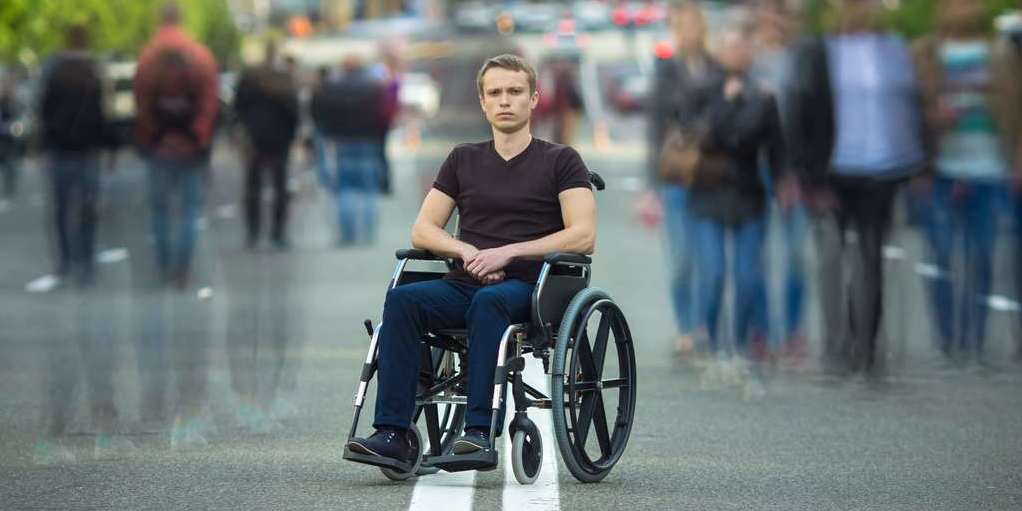Suffering a traumatic brain injury (TBI) is a serious matter with far-reaching implications for the future. The resulting challenges for most accident victims aren’t just physical but extend to the mental, cognitive-communication, and behavioral, amongst others.
Before digging into the effects of TBI, it’s important to understand what the term means.
What is a traumatic brain injury?
A TBI is described as a blow or bump to the head that upsets the activity of the brain. Not every bump to the head will be a traumatic brain injury. The damage can range from mild to moderate to severe and the effects can be short-term, long-term, or even permanent.
A mild case is one in which the change in mental status and/or consciousness is brief. A more severe TBI is one in which the person was unconscious for a significant period of time and may have even experienced amnesia.
What are the challenges?
There is a range of problems that a person experiencing a TBI may have to deal with. Sometimes, the injuries are so severe that the sufferer may not be able to be responsible for their own care and would require the assistance of a medical professional.
Let’s dig a little deeper into some of the specific challenges that can come with a traumatic brain injury:
- Physical. A person may experience nausea, headaches, seizures, a loss of consciousness, lessened muscle strength or paralysis, and issues with movement, balance, and coordination.
- Sensory. Depending on the area of the brain that was injured, a person may be at greater risk of a stroke. They also may lack the sensitivity to determine their location in space, lowering their ability to react properly to harmful stimuli. For example, they may not be able to tell how hot their bath water is and burn themselves.
- Behavioral. A person with a TBI may have trouble expressing emotions in the same way they did prior to their injury or even experiencing those emotions. They may develop anxiety disorders, become combative, or depressed. Getting frustrated easily, having mood swings, and being impulsive or irritable are often results of TBI.
- Cognitive. Problem-solving, ability to pay attention, and other thinking impairments may be caused by a traumatic brain injury. Setting goals and working toward them may be outside the victim’s capability. Memory can also suffer, although the memory of events that happened before the brain injury are usually not affected.
- Communication. Patients suffering from a TBI may have difficulty understanding speech, as well as producing speech in the correct way. They may have trouble writing and understanding written language. It can often appear as a foreign language to them. Sometimes, involvement in conversation is difficult because they may interrupt or generally not have an awareness of inappropriate behavior.
What is an acquired brain injury?
An acquired brain injury (ABI) disrupts normal brain functions. A blow to the head can cause ABI. It can also be a congenital disorder occurring at birth. It can be the result of a traffic accident, a fall, a serious assault or a hit to the head during a sporting event.
More severe TBIs everybody needs to know
Traumatic brain injuries (TBIs) affect how the brain works. They can be mild, moderate or severe, with the most severe injuries resulting in paralysis or even death.
A mild traumatic brain injury, which can affect brain cells temporarily, can be difficult to recognize. Signs of a problem may be noticeable immediately after a head trauma or may appear days or weeks later. Symptoms can include fatigue, headache, dizziness or loss of balance, and speech problems.
Depending on the severity, TBI can last a few days or it can be permanent. Traumatic brain injuries can be difficult to recognize without imaging and diagnostic equipment.
What can be done?
While each different problem carries a different treatment option, they all can have significant costs attached. Those expenditures rise when a loved one cannot live on their own or be responsible for their own care.
Seeking maximum compensation legally may be the only way to cover the costs necessary for treatment and long-term care. If you’re dealing with a brain injury claim, personal injury lawyers at Yegendorf Rashid are experienced and can guide you through the process. Schedule your free consultation today.
Healing from a brain injury
The recovery process for a brain injury can vary depending on the severity of the condition. In a worst-case scenario, the brain injury leads to a permanent disability or even death. Often, the patient will need to undergo medically-based or community-based rehabilitation in order to recover fully from a brain injury. Failure to seek immediate treatment for a brain injury can lead to more problems. At our law firm in Ottawa, we introduce you to a brain injury lawyer who will work on your case and help you access the treatment you need to improve your quality of life.
Discovering a Brain Injury
Mild traumatic brain injuries are sometimes not diagnosed and are often difficult to detect because the effects of brain injuries differ between individuals, and there may be no obvious physical signs of brain damage. It can take days, even weeks or months for symptoms to appear and sometimes the person who has suffered a brain injury is not able to realize that something is wrong. Often it is co-workers, family members and friends who notice the symptoms first.
Brain Injury Statistics in Canada
By 2031, TBI is expected to be among the most common neurological conditions affecting Canadians, according to Brain Injury Canada, noting two percent of the population currently lives with the injury.
Studies reveal that 452 people suffer a serious brain injury every day in Canada. Every hour, 20 Canadians will suffer a brain injury and survivors are three times more likely to suffer a second brain injury. Statistics paint a grim picture:
- Untreated head and brain injuries can lead to ‘self-medication’ with people using drugs and alcohol.
- 50,000 people in Canada sustain brain injuries each year.
- TBI is the leading killer and disabler of Canadians under the age of 40.
- More than 11,000 Canadians die each year due to traumatic brain injuries.
Automobile accidents account for more than 50 percent of all traumatic brain injuries.














